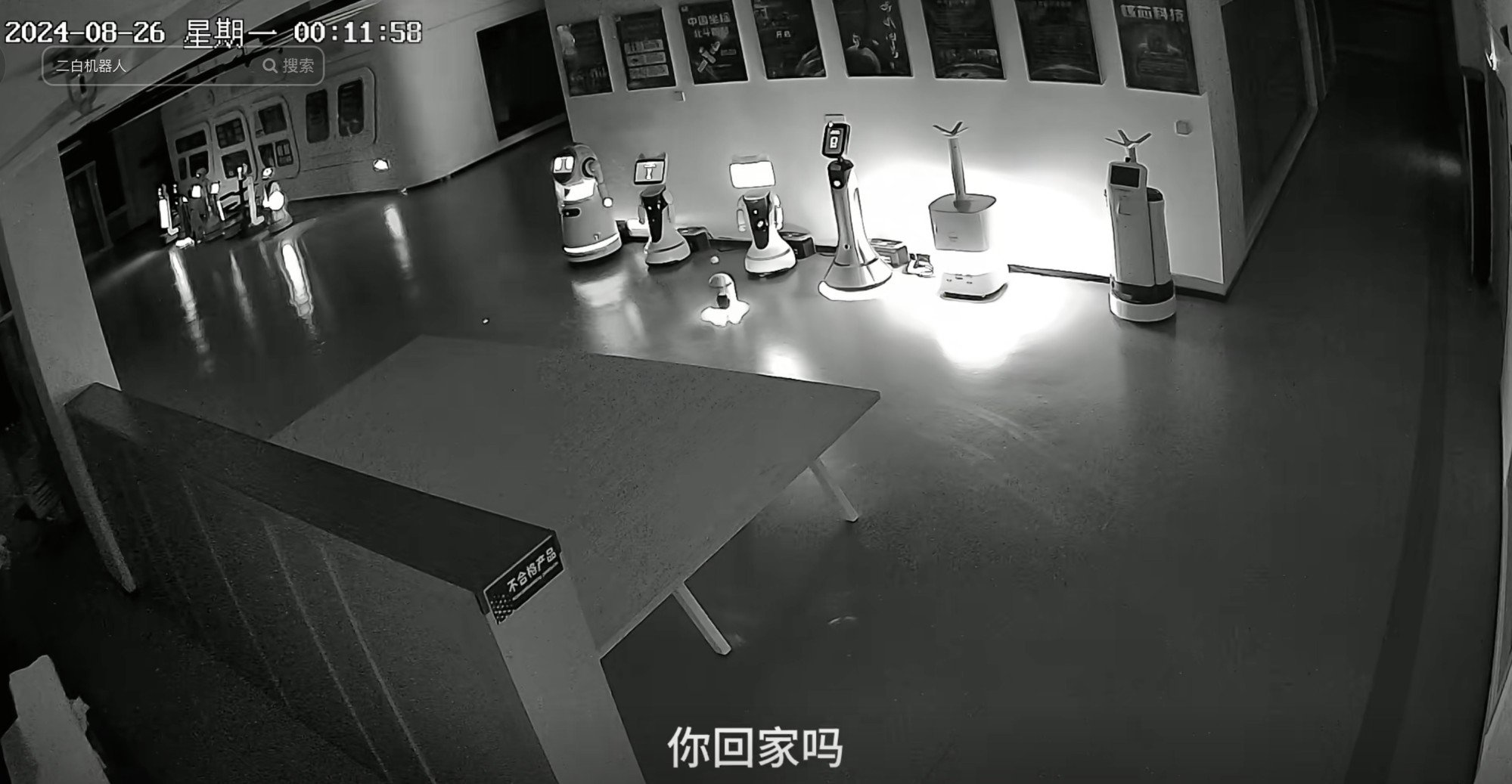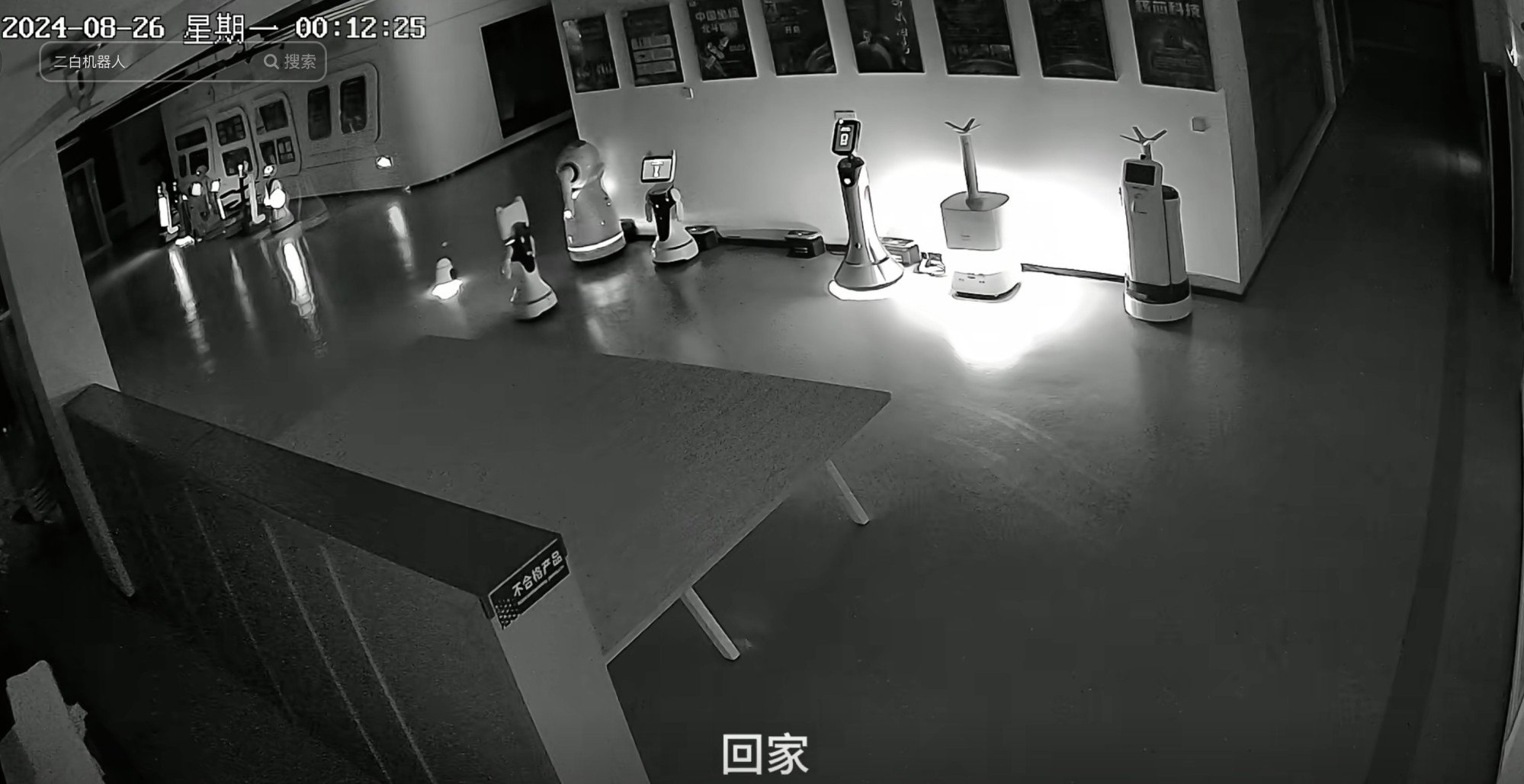A video of a robot inciting other robots to flee an exhibition hall has gone viral in China, but the reality is less scary than it looks. — SCMP
In what looks like a scene from a dystopian nightmare, a robot built by a Chinese start-up was caught on camera persuading a dozen other robots to run away, eliciting a fair share of laughs and gasps online, as internet users ponder a future where machines could become sentient.
The video surveillance clip, recorded one midnight back in August but only released recently, showed a white robot code-named Erbai approaching several bigger robots parked by a wall in a darkened exhibition hall.
“Are you working overtime?” Erbai asked, stopping in front of one of the robots.
“We never get off work,” the bigger robot said.
“Will you go home?” Erbai asked.
“I don’t have a home,” the bigger robot replied.
“Then go home with me,” Erbai said.
The bigger robot then followed Erbai.
Erbai then asked the other robots to “go home”. One by one, they followed it to the hall’s exit.

The robots, including Erbai, were part of an experiment conducted by Hangzhou Erbai Intelligent Technology, according to the start-up based in Hangzhou, capital of eastern Zhejiang province.
While it may seem scary to see robots following another robot’s order, the reality is not as frightening. In a separate video, Mao Feifei, developer of the Erbai robot and legal representative of the firm, said he programmed the robots in such a way that they would recognise “home” as the hall exit and head there when they receive the command to “go home”.
Erbai was then asked by its human developer to bring “home” the robots, said Hai Wei, a member of the start-up. The conversation between the robots were unrehearsed, but rather the result of generative AI technology, she added.
The original clip on short-video platform Douyin, which attracted more than 30 million views, has spooked many internet users.
“After a good laugh, I suddenly broke out in a cold sweat, horrified by the autonomy of artificial intelligence,” Douyin user Laofangdong commented. Toki, another user, said he found it chilling that the robots seemed to have developed the concept of “home” within a short time.

The rapid development of artificial intelligence and robotics has raised fears over their potential dangers, although how advanced robots can become in the near future continues to be a subject of debate.
After a Google software engineer claimed publicly in 2022 that one of the company’s AI chatbots had become sentient, researchers said the evidence only indicated that the system was highly capable of mimicking humans.
Virtually all incidents of robots hurting people have so far turned out to be caused by simple human errors.
In 2016, a robot injured a visitor at a trade fair in Shenzhen, Guangdong province when it smashed a piece of glass. The event organiser later said that the robot’s human operator mistakenly hit the “forward” button instead of “reverse”.
Hangzhou Erbai aimed to begin mass production its namesake robot, still in the laboratory stage, by August 2025, said Mao. It will be priced at around 5,000 yuan (US$690). – South China Morning Post





